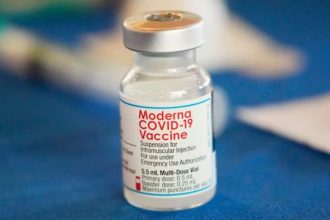A recent study presented at the Alzheimer’s Association International Conference in Toronto suggests that older adults enrolled in the Supplemental Nutrition Assistance Program (SNAP) experience a slower rate of cognitive decline compared to their eligible peers who do not receive benefits. Research indicates that individuals over 50 who participated in SNAP exhibited a 10% slower decrease in memory and cognitive abilities, translating to an equivalent of two to three additional years of cognitive health over a decade, according to Linlin Da, the study’s lead author.
Da noted that SNAP, which aids low-income individuals in affording groceries, may provide significant benefits for brain health by ensuring consistent access to food. “By improving access to nutrient-rich foods, SNAP may support brain health, reduce the stress, and promote better health overall,” she stated.
The study, funded by the National Institutes of Health, arrives shortly after legislation signed by President Donald Trump, which is expected to reduce SNAP funding by approximately $186 billion through 2034. Food banks nationwide are already facing increased demand amid funding cuts from the Agriculture Department.
Da emphasized the link between food insecurity and cognitive health, asserting that such conditions can lead to poor nutrition and chronic illnesses, adversely affecting the brain.
Despite its promising findings, the study has not yet undergone peer review and raises several unanswered questions. Researchers did not track the specific diets of participants, leaving unclear whether those receiving SNAP benefits consumed healthier foods. Dr. Mitchell Elkind, chief science officer for brain health and stroke at the American Heart Association, highlighted that high-sodium diets can contribute to high blood pressure, a significant dementia risk factor.
Elkind, not involved in the study, added that programs like SNAP might alleviate the anxiety associated with financial difficulties, allowing individuals to focus on other crucial aspects of their lives. Chronic stress is known to increase the risk of dementia.
Although the study followed over 2,300 older adults for a decade, it cannot definitively conclude that SNAP participation alone protects against cognitive decline. It’s conceivable that those who enrolled in SNAP were in better cognitive health to begin with, as applying for benefits can be challenging for cognitively impaired individuals.
Kriti Jain, a health administrator at NIH’s National Institute on Aging, noted, “Observational studies from around the world have shown us that food insecurity and poor cognitive health go together.” She added that it’s becoming evident that food insecurity often precedes cognitive decline.
The study suggests the potential for environmental and policy changes to improve cognitive aging, as food security and nutrition play vital roles. Anti-hunger advocates argue that proposed cuts to SNAP will exacerbate food insecurity and worsen health outcomes.
“SNAP is both a lifeline for older adults and a critical public health tool,” said Crystal FitzSimons, president of the Food Research & Action Center. “Participating in SNAP can mean extra years of cognitive health, helping older adults remain independent instead of moving into nursing homes.”
The Republican-led House Agriculture Committee argues that the funding reductions aim to restablish SNAP’s original purpose of promoting work rather than welfare while saving taxpayer dollars.
Karen Forbes, a 61-year-old SNAP participant from Oregon, shared her experience balancing health with financial constraints. After developing long Covid, which induced fatigue and cognitive issues, Forbes highlighted how SNAP allows her to prioritize nutritious food without compromising other financial obligations.
As food insecurity rises among families with seniors, Jain underscored the looming public health crisis, underscoring data showing a significant increase in food insecurity in such demographics over the past two decades. With estimates suggesting that funding cuts could impact 22.3 million families, experts call for more research into how dietary factors affect brain health.
The Urban Institute’s projections paint a bleak picture, characterizing the proposed funding cuts as the most substantial in SNAP’s history. With the majority of its 42 million participants being older adults, individuals with disabilities, and families with children, the implications of these changes could be profound.
In light of the findings, Elkind reiterated the necessity for further exploration into the relationship between nutrition and cognitive health, particularly studying the impact of healthy food provisions on cognition and dementia risk.






